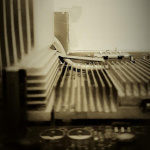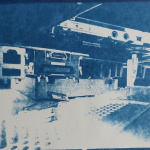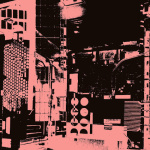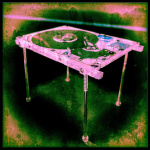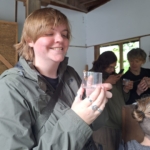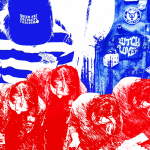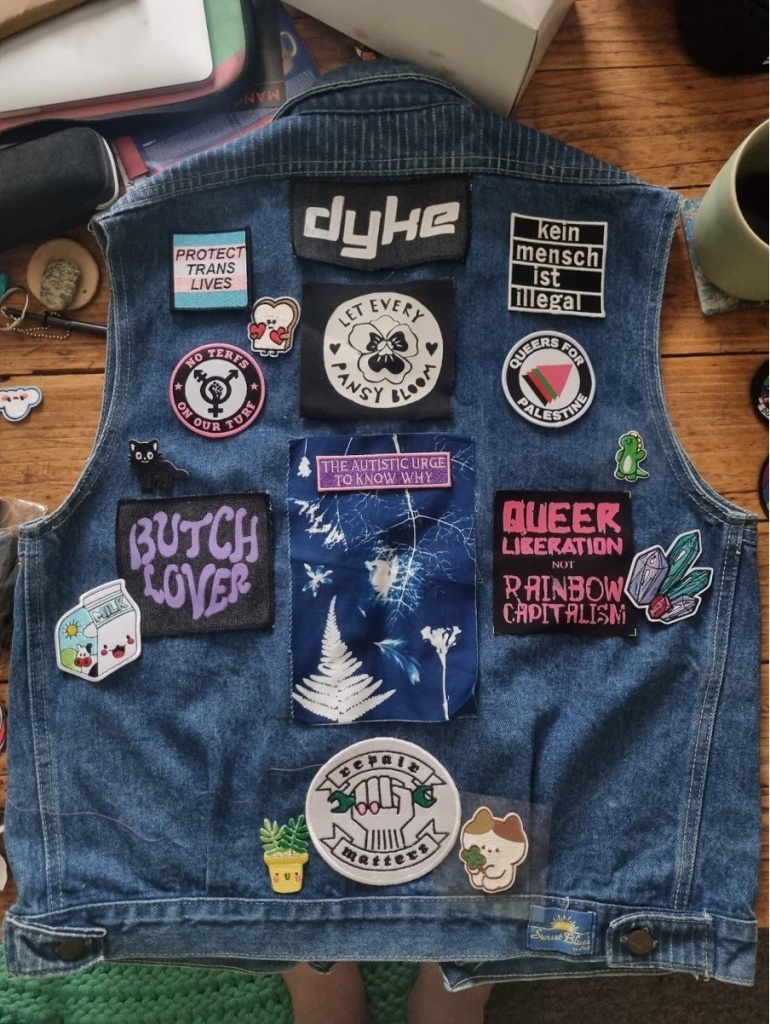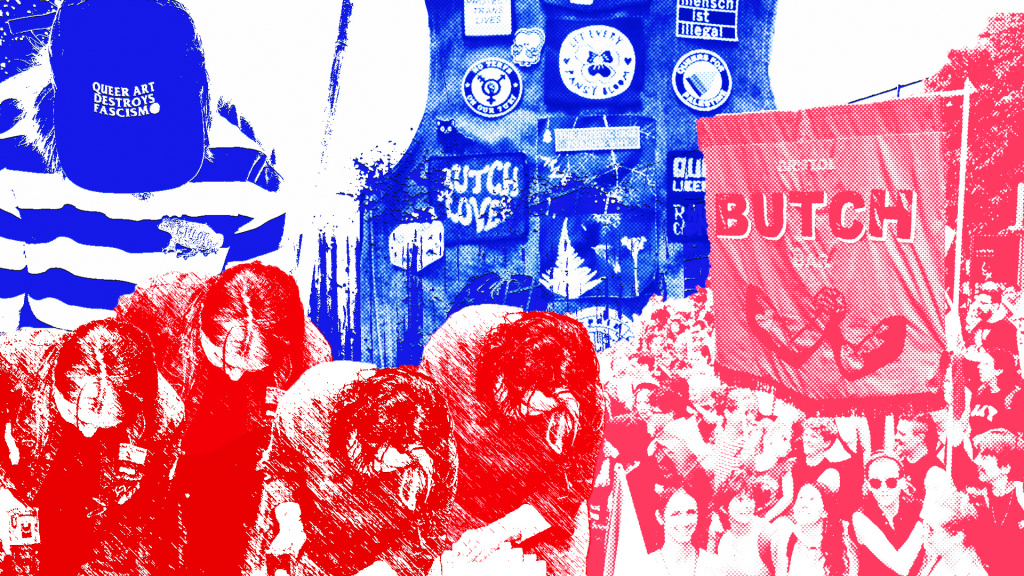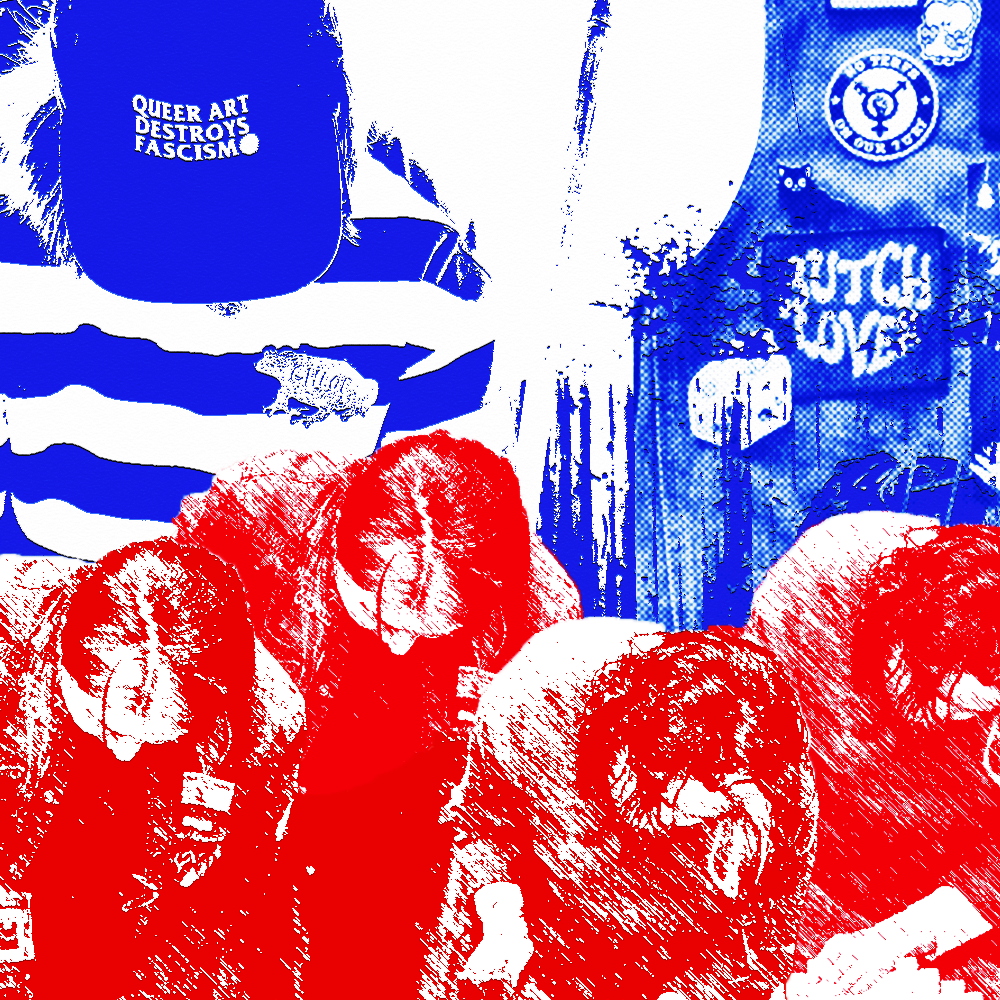First an introduction, HELLO! I’m Chloe – an autistic lesbian artist, designer, organiser and facilitator. I’ve spent around 13 years co-creating and co-designing physical and digital tools, artworks and experiences with groups of people that are often overlooked, historically excluded and strategically undervalued. Like people living with dementia and their carers, young people that are care experienced, and neurodivergent and disabled people. I’ve co-created physical electronic products, digital platforms and apps, as services, systems and artworks that explore care, repair and connection. In this time I’ve learnt I’m really good at asking curious questions, making people feel at ease with being themselves around me, and facilitating these projects.
My strategy has always been to run accessible workshops, sitting alongside people, understanding their lives, and seeing where creative tech and people’s lived experience and creative ideas could meet each other to create something that is connecting / greater than the sum of its parts / transforms a single person’s experience into a shared experience. I’ve always been interested in how people care for each other, how we support and repair each other’s sense of identity, and how to connect over differences.
An example to illustrate what this looks like was working with artist Aidan Moesby on a project called Weather Report, which started just before the covid pandemic.
Weather Report was a co-design project working with Second Step – we worked with older working class men at risk of suicide. The project was powerful and stays with me today. We were exploring what these men thought about their mental health, how to express it, and what might work to support it.
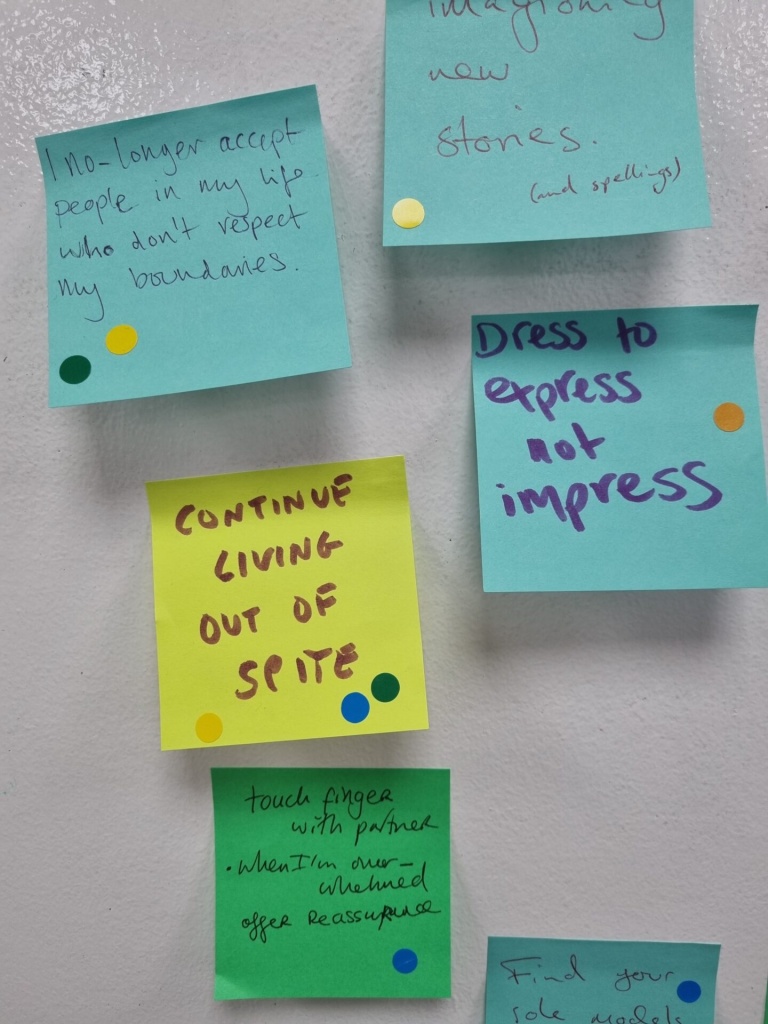
I was worried about running these co-creation workshops – what if no men wanted to talk, and, as the only person in the room who wasn’t a man, would I hold them back? – My assumptions of the group were completely wrong, the men started to open up about their emotions, moods and experiences very quickly.
We focussed on the first step of exploring how to express emotions. One man said “Wouldn’t it be great, if we could talk about our mental health like we can the weather- a suitable topic for anyone even strangers to talk about.” In the workshops we started to use weather as a visual metaphor to express how we were feeling. “It’s been raining for weeks now.” I realised there that some of the power of co-design wasn’t the tool / artwork you created, but the process of convening people.
What a simple idea, just deciding a place, time and making people feel comfortable, providing tea and biscuits, setting community guidelines for people to meet each other and share their experiences, and having some creative physical craft + drawing supplies to express yourself. My biggest take-away from that project, was that some tools I’d created in the past – felt like plasters, on top of deep societal systemic issues. Of course your mental health was going to be bad if you didn’t have somewhere safe to sleep, or, you’ve just broken up with your partner, or you’ve just lost your job, or you don’t have anyone to talk to – or all 4 at once and more.
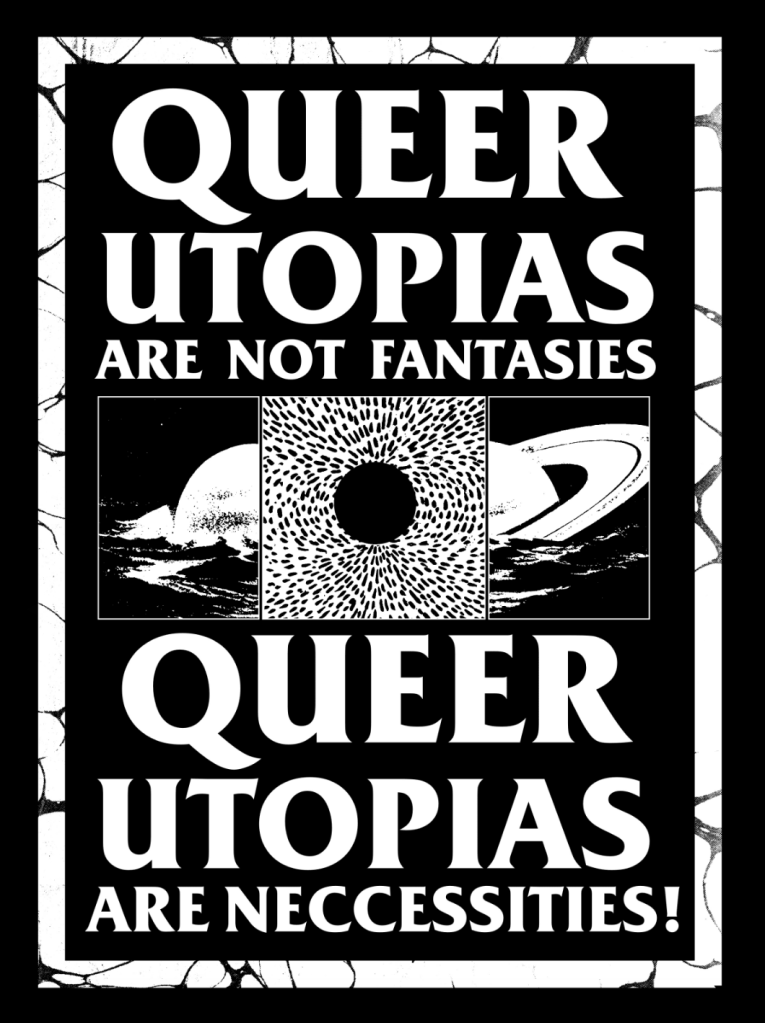
After the multiple covid lockdowns, I lost most of my work facilitating in person workshops and co-designing. Me and my partner, then lost a family member who was one of the first 100 people to die from Covid, whilst people were debating whether it was real or not, we’d already attended an online funeral and were in grief.
I then became a full-time carer for a queer family member’s mental health. Then I burned out and had my own mental health breakdown – compounded by just realising I was autistic. I had to start life again. Not by choice I would add!
To start again – what did I care about, what would get me out of bed in the morning. For the first time I prioritised myself as a lesbian – making something for my queer family – built up of queers, lesbians, NB and trans people.
I refocussed and realised my queerness and neurodivergence were central to who I am. Secondly access, inclusion, creativity and community building was what I loved most.
So my good friend Rosie Poebright and me started thinking about Butches in Bristol and where were they? Inspired by watching Rebel Dykes and how they organised, and trip to Butch Please in London, we chatted about organising something to bring people together and to get me out of the house. A simple idea for a free monthly meetup for people to meet other people and start to build community.
Same place, same time, last Tuesday of the Month. Something reliable, free and dependable.
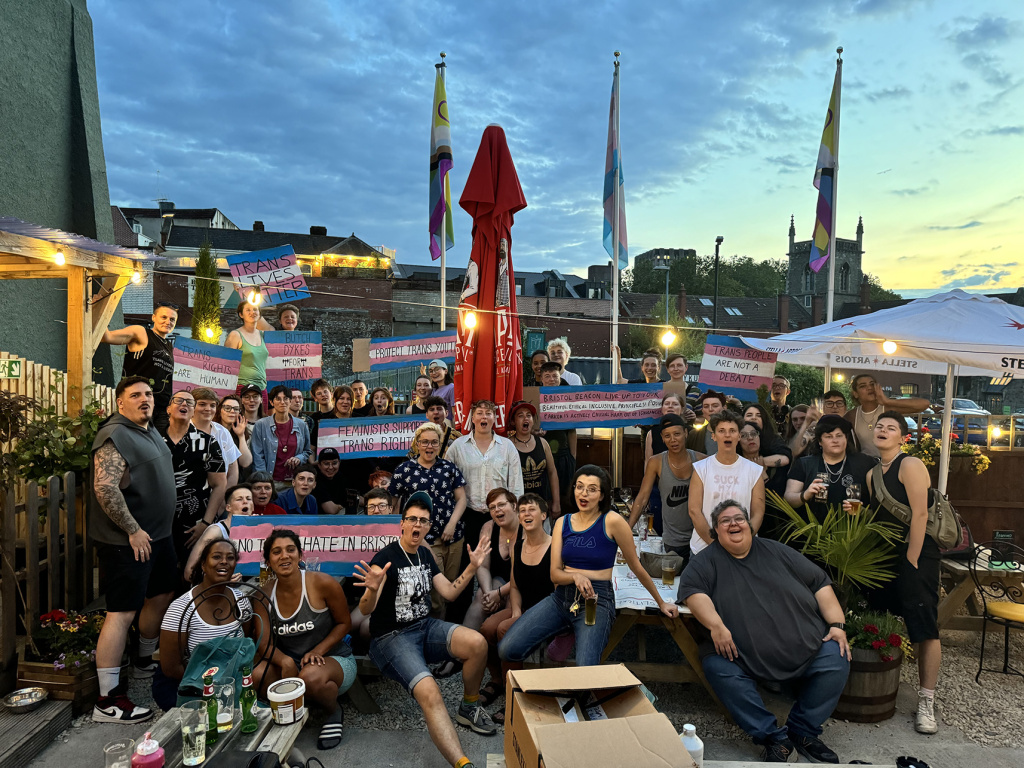
Something that we could offer for free to unite lesbians, trans people and reject the notion of us ever being against each other, we have always supported each other throughout history. Of all LGBT+ identities, other than trans and non-binary people themselves, lesbian young adults were most likely to say they know a trans person (92%), and most likely to say they are “supportive” or “very supportive” of trans people (96%).
Then devastatingly one of my queer family members – Sovereign – died by suicide-
And the start of Butch Bar became for me a joyful, harsh grief project. I always had Sovereign in mind when thinking about Butch Bar they were non binary, trans and needed to feel in community with people, feel love and accept themselves (not easy things to do I know) I met lots of people at their memorial that were talking about how excited they were about Butch Bar. We ran the first BB in May 2022 and I would meet with fellow grievers each month. I ran a craft corner for myself and other shy and neurodivergent people that are happier making crafts than looking into each other’s eyes.
At Butch Bar we make badges, zines, we have arm wrestling championships, hat competitions, fancy dress parties, gender chaos parties, drag performances, pride leather parties, we hug, we grieve, we care for each other, we protest, we march, we fundraise money for community needs. Butch Bar is a sea of mis-fits, you have the show-offs/performers, the charmers and the shy neurodivergents. It’s beautiful and overwhelming with so many new people in my life. But the person I’d really like to come, see and hug at Butch Bar isn’t here anymore.
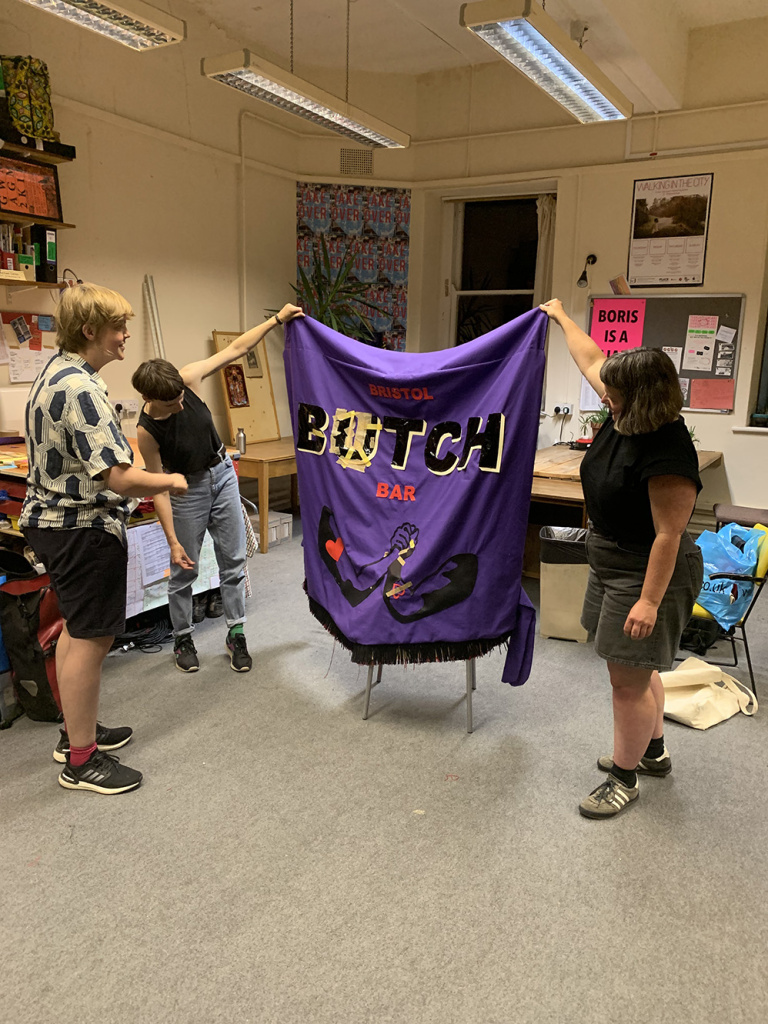
POEM ABOUT BUTCH BAR BY Eryn McDonald
Ode to Bristol Butch Bar
We are the breed that grew up ugly in our teens
Learned stoicism to earn respect where prettiness was currency and these days
We are still not the faces you see on TV
Not usually
But I learned sexy from Orange is the New Black
And here we are
Tucked away at the back of the bar
A glorious gathering of butches
A variety of beautiful queers
My young eyes popping from their sockets
At the sight of my kinda sexy
No longer intimidated because suddenly
I look like a part of something,
That old schoolgirl ugly appears different here,
Every playground insult upturned and
I am in awe of the broadness of shoulders
Shrouded in leather, denim and plaid,
Strong fingers flicking cigarette ash
Husky voices recounting stories of the times
We were misgendered in bathrooms:
This is everything I was never told I could want.
“She” means something different here,
The ‘S’ for I SEE you
‘H’ for HOME is where the denim hangs
‘E’ for EVERYTHING is gonna be just fine.
There are some spaces where ‘she’
Does not feel like a violation
Where the anonymity of ‘they’ is unnecessary
Because here I owe no explanation,
No one is searching for the woman I have never been
They read this skin like a well-thumbed bible
My ugly something to be celebrated
Because this is our kinda beautiful –
And this tomboy is finally home.
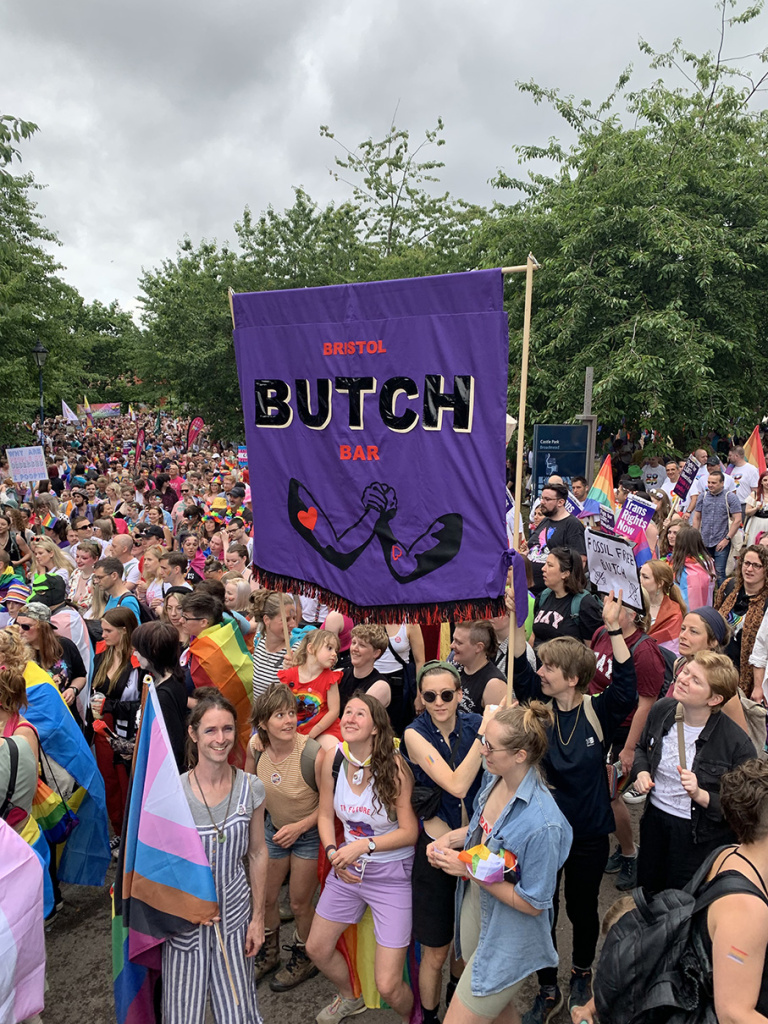
3 years on Butch Bar has grown its own wings and works as a hub for trans, NB butches, studs, tomboys & pals and is part of the Butch + Lesbian Renaissance across the UK with helping/ supporting the organisers of sibling events happen across the UK – Popup Dyke Bar LDN, Cardiff Butch, Edinburgh Dyke Bar, Birmingham Butch Bar.
Grief got me super focussed on organising things my community needed. I wondered what would radical care for queer people’s grief look like? Around the same time Polly Maxwell, Leni Rolfe and myself co-founded Queer Death Cafe Bristol, the first queer death cafe in the UK in June 2022. It currently runs 4 times a year, but when we started we ran once a month. An informal, safe meetup for queer humans to come together, and talk about grief, loss, death and dying.
Again we focussed on how crafting, playing with clay, drawing with charcoal, making collages, creating a zine together can help people express grief and loss in delicate and sensitive ways. We’ve also run grief embodiment workshops, where Leni has led sessions of yoga nidra to support us to tend to the grief in our bodies through rest. Running Queer Death Cafe with my fellow queer grievers has been vital for me to process grief in community with others. Learn from other people about how they are grieving. We’re not meant to grieve alone. To grieve alongside other soft people, and to have your grief witnessed by strangers, on different journeys but alongside you, has been transformative for my grief.
I decided I no-longer wanted to work on my own, I would collaborate on projects, co- lead on things. I would work on non-hierarchical projects and work on shared decision making. I decided that I would never attend another business networking event, life is too short and it’s not what matters.
If we are creating new things – why would we use old tools/leadership styles/power structures? We need to rethink the way we’ve been doing things. From autocratic leadership – into community based decision making.
“For the master’s tool will never dismantle the master’s house. They may allow us temporarily to beat him at his own game, but they will never enable us to bring about genuine change. And this fact is only threatening to those women who still define the master’s house as their only source of support.”
Audre Lorde
My favourite part of running workshops, it only happens say twice a year, is this sparkly connecting feeling where the hairs on your arms stick up – feeling that this is exactly what I’m meant to be doing. It happens when someone opens up and expresses themselves for the first time after a series of workshops. A teenager asks me about my autism and queerness and realises their own. A person shares their favourite book and how it felt to be seen for the first time at Bristol Butch Bar book circle, three people share what it is like to crash with their chronic-illness, an experience that chronically ill people find difficult to share with able bodied partners and families that don’t understand.
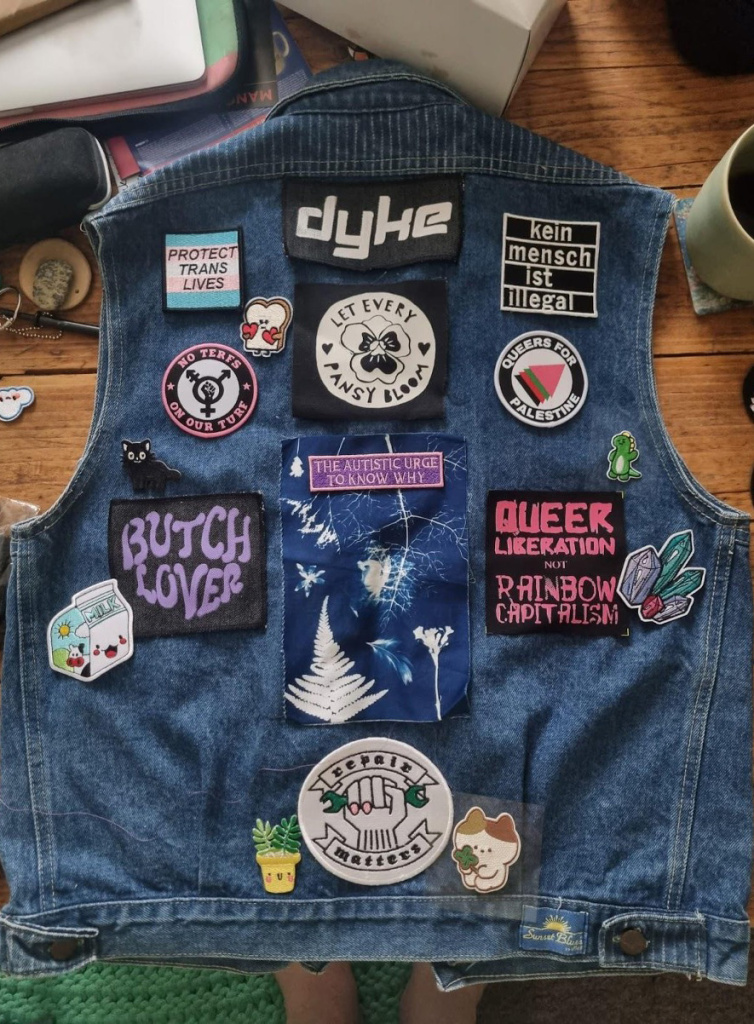
Murmurations
I was co-lead artist on a project called Murmurations – Nothing About Us Without Us, with Raquel Mesuguer-Zafe, Graham Johnson and Shrouk El-Attar. We decided we would run this project as equitably as possible, prioritising our access needs and ways of working. It was a great first project to get back into paid work.
Murmurations seeks to share the hidden experiences of older people, queer people and the crip community – the highs, the lows, and the strategies we use to navigate the world.
We have worked closely with groups spanning these communities, listening, talking, and finding out what must be heard. We co-designed values with members of these groups, bringing these into an experience that aims to make the invisible visible.
I lead the queer conversations:
WE DON’T LIVE IN A BINARY WORLD
This is a conversation between Anna and Rae. They talk about discovering the term non binary for the first time, they talk about navigating gendered healthcare services as disabled and non binary people that don’t fit the two available boxes. They talk about the binary systems and social constructs that oppress us all. They talk about quantum physics and how it affirms non binary-ness. They talk about the you, the me, the we and the perceived other.
QUEER GRIEF
This is an extract from a conversation between Polly Maxwell and Graham Johnson. They discuss what family of choice means to them, how they actively care in their queer families. They also talk about queer death and loss, and we introduce an emerald green sea slug, and how it could symbolise families of choice and closer bonds between queer people.
QUEER ELDERS
The conversation between three older queer people when they feel visible or invisible, when they feel misrepresented, we talk about transphobia Today and its daily impact on trans people, and how society has gotten worse over the last 15 years.
CRASHING
Crashing is an experience those of us with chronic illness find difficult to explain to our family and friends. It’s an experience that seems to defy words. In this piece you’ll hear two poems and extracts from a conversation about what a crash feels like. These descriptions are as challenging as they are epic, and at times may be difficult to hear.
I realised that being part of a community is so important for queer people, seeing yourself, seeing an older version of yourself that is happy for queer – especially Non binary and trans people – is so important. I ran a project with older queer and trans people to share their life stories and experiences here:
Society frames non binary-ness as a new thing, and young people as the only ones who are trans, so this project was great, to connect with trans people in their 70s that are still wondering and understanding themselves more, and in the process of coming out and transitioning throughout life.
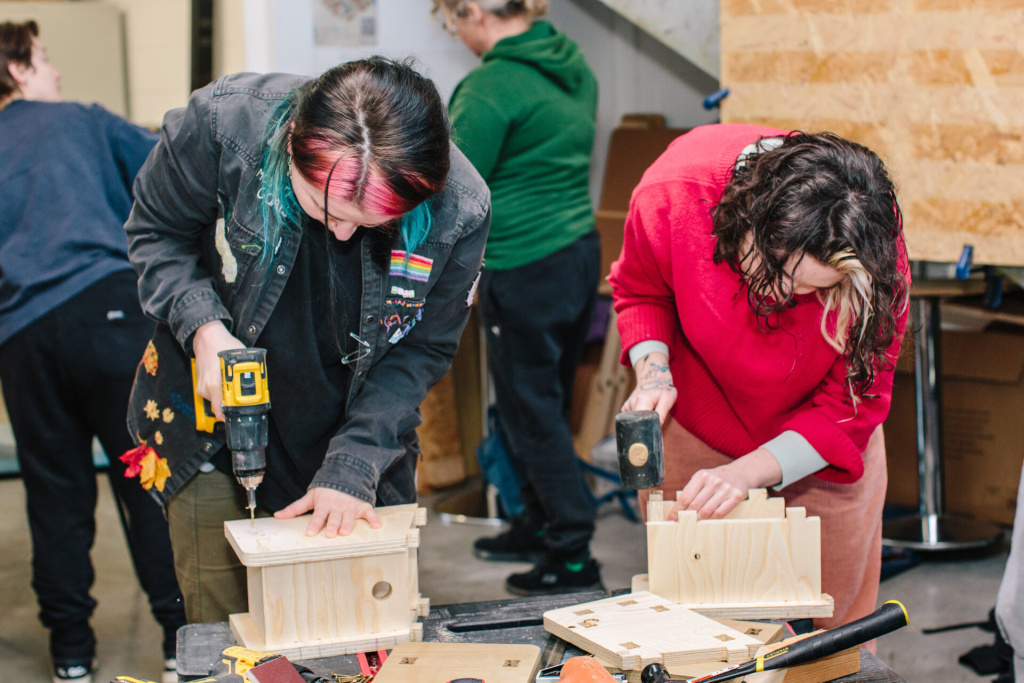
Place based communities
CREATIVE TWERTON / QUEER COMMUNITY IN BATH
I’ve been on a MyWorld fellowship working at Creative Twerton – to explore creative engagement and participation and see where creative tech might play a role.
Twerton, like Knowle West in Bristol, has had years of being overlooked and strategically undervalued. The closure of children’s centres, under-funded mental health services locally, a lack of accessible council housing, the cost of living crisis, has pushed people into deeper poverty. All against a national backdrop where there’s been a 51% increase in the last 5 years in emergency food parcels from food banks. This means that community art centres like Creative Twerton, and Creative Cuppa sessions at Knowle West Media Centre, have become vital, safe open places on the street where you will get a warm friendly welcome – have a rest from life, learn something new and creative to do with your hands. From chatting to people in Twerton, I realised how important the art space was for local people who had a wide range of access needs.
I ran a series of creative workshops, underpinned by mental health and wellbeing ideas, that used crafting and simple audio tech to co-create an art piece of what community meant to local people.
From there, much of my work at Creative Twerton was co-creating community guidelines with local people. Making these visible, understandable and accessible.
Lots of what I do is about communicating visually – and in words – things that are silent/implicit in spaces. Part of this comes from a need with my autism, for silent/implied things to be discussed and made accessible. I can feel safer in a space, if I understand what’s expected of me.
At the end of my fellowship, Creative Twerton, a place which provided a lifeline to so many in Twerton closed its doors due to instability of renting the space, and the landlord wanting the property back.
Queer Community Workshops
In my latest research fellowship on LGBTQIA+ engagement at The Studio in Bath looking at creative technology, I ran Queer community building and activism workshops to encourage people that live in Bath and the surrounding areas to think about what it was already offering, whether tech could help with connecting people and what’s already going on, and what new ideas for groups/ activities could be generated. Using my experience to inspire others to set up their own community groups or activities, we then were able to fund seven new projects off the back of this workshop.
I’ve also run workshops on Queering Tech – involving learning ‘what queerness means’ to people, and workshops about what queer strategies people use in everyday life that they want to share, which I recently ran in the Queering AI workshop series.
This workshop is so important to me, and I’ve been iterating it. It asks people to consider what queer + ND, disabled, crip strategies they are using in their everyday life, what strategies people they admire use and create an archive of open strategies that any queer, nd+ disabled person can use in their daily life. Like a tarot deck of strategies to use.
My main passion is understanding, researching and communicating the models or strategies people, especially Queer, trans, NB, disabled, chronically ill, neurodivergent people use in their everyday lives and sharing these strategies.
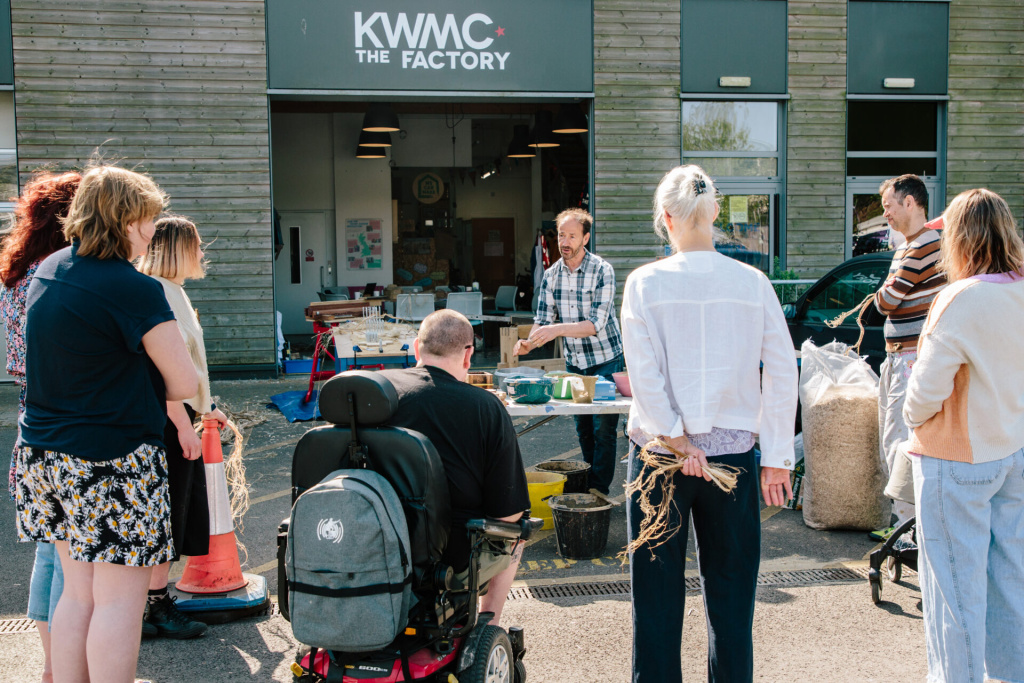
Universities and their Civic Role
These projects are unfortunately hard to fund, and as the arts funding shrinks further it’s hard to see where a grant based community art system will stay viable. One of the few places left to find funding is in research/ academic funding. The last 3 projects I’ve been involved in were funded by MyWorld + University of Bristol’s Connecting Through Culture As We Age research project.
Instead of places like Creative Twerton, being funded by councils, these projects are funded through initially smalls arts grants out of universities, now those universities are taking more notice – and as they take up more and more buildings in cities and towns – realising the civic role they must play. The ‘impact’ research has is now one of the most vital parts of said research.
Universities play such a civic role in our cities, owning so much of our properties and student accommodation blocks. Creating new shiny buildings filled to the brim with expensive tech kit. The large infrastructure funding is available it seems, but not so much the salaried posts to manage the technology, or the inclusion producers to open access to this technology. The actual access of these shiny bits of tech is always a second thought. Academics and universities need to have impact with their research, impact ‘on’ communities. But as it builds new buildings, it should also have some percentage of funding for funding existing community groups.
Universities need to try non extractive methods of working with community groups. I offer training for academics in Bristol on how to use participatory methods. I’m always astounded by how many academics use the term co-design, but many don’t know what that actually means. I use an engagement scale for the level of co-design they think they are at. At the start of the workshop they will put themselves far further along than they actually are. By the end, it’s a more honest view of their engagement. Co-design is not just a process, it’s being involved in a movement, that requires you to assess, understand power indifferences, and to address these in your processes.
I’ve been involved in this Hopeful and Generous Food Futures UWE project where academic, project partner, artist, researcher are on the same level – a non-hierarchical approach, it’s been a really positive experience. We need to stop doing ‘innovation’ using the same old ways of working.
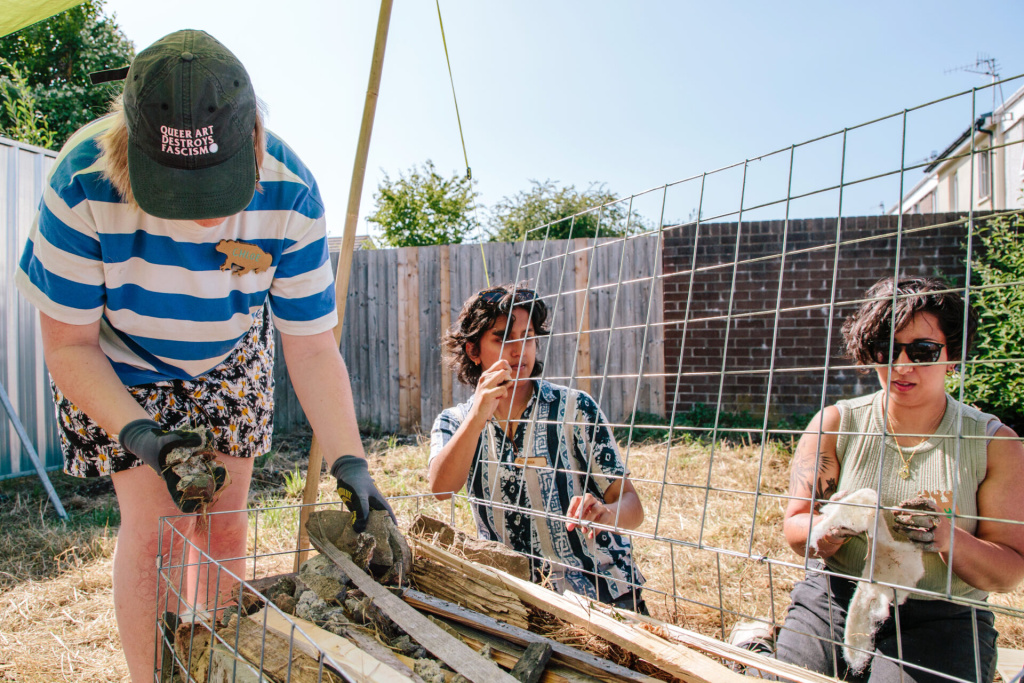
Knowle West Media Centre
My practice of community building/co-design and trust is a slow, dependable practice, where trust is hard to build, and easy to break. Especially with people that live in Twerton, Knowle West + queer + trans communities in Bristol and Bath, as they are consistently overlooked/ strategically undervalued/ fighting for their lives.
I now work at KWMC and work with We Can Make on a neighbourhood tradeschool programme working with local people on DIY, natural materials and energy, and on a Net Zero project called Transforming Energy. The project works with Knowle West, Easton and Southmead, on how to include people in a ‘Just Transition’ towards more sustainable energy production, and how the method of retrofit we’ve created in KW could scale to new streets across Bristol.
The job also boils down to making people feel welcome, offering them a hot drink, some nice food to share, sharing our community guidelines, caring for people’s access needs and learning together about how we can change our lives, homes, streets and neighbourhoods for the better, for nature and ourselves.
I recently attended Re:Assemble run by Civic Square and Healing Justice London at Centre for Alternative Tech, the weekend was transformative in so many ways. I’ll leave you with some words from Indy:
“We are in the middle of a structural war, and a planet that is re-entangling. We are told there is a way that we can win in separation, but this is a delusion that we must shatter. Our doubt—recognising that we cannot know everything—is where the magic comes; it means we need to work in a theory of tenderness, care, relationship. Certainty, control, separation, and dominance do not work in learning the scale of the world; the universe.
We are at a fork between mutually assured destruction and mutually assured thriving. The only viable pathway is a re-imagination of what it means to be human that recognises we are a multitude; we are fields of operation.”
Indy Johar, Dark Matter Labs – Reading the Time, Meeting The Moment at Re:Assemble

